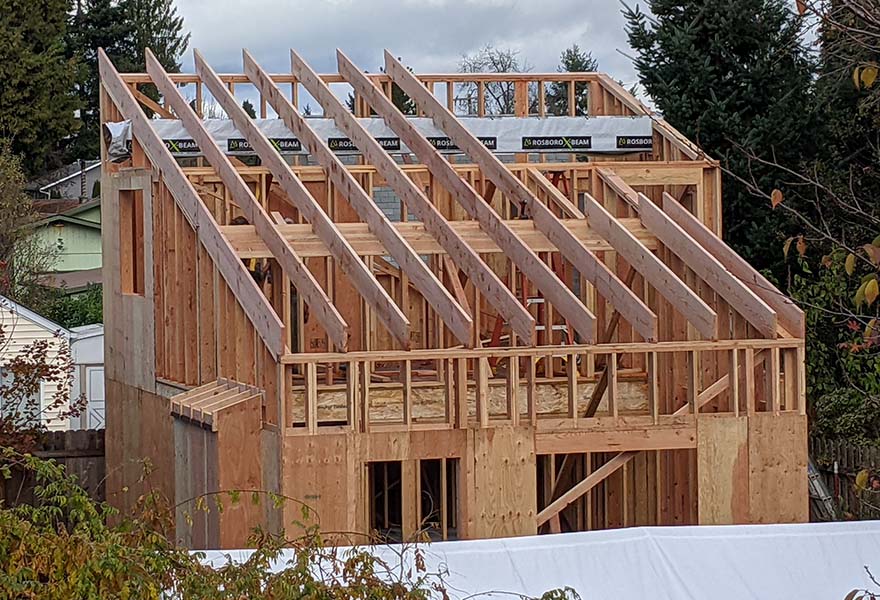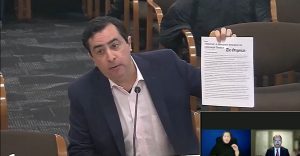UO Law Issues Report on HB2001 and Middle Housing Misconceptions
3 min read
On April 11th the University of Oregon School of Law’s Environmental and Natural Resources Law Center released a white paper from its Sustainable Land Use Project that attempts to dispel some common middle housing misconceptions, as well as analyze the Eugene Planning Commission’s recommendations for additions to the Oregon State minimums required by the recent HB2001 law. You’ll find an excerpt of the summary information sent to the Eugene City Council below and a link to the full PDF of the white paper here.
The Sustainable Land Use Project is an interdisciplinary research project of the University of Oregon School of Law’s Environmental and Natural Resources Law Center. Assistant Professor Sarah Adams-Schoen serves as a faculty lead for the Project. Over the last two years, fellows and staff of the Sustainable Land Use Project have been examining state and local laws and policies that affect access to, and development of, affordable- and climate-responsive housing.
The research presented in the attached white paper demonstrate that the EPC recommendation is likely to result in the production of more affordable and more climate-responsive housing than a code based on the state middle housing minimum standards would achieve. To summarize:
- The EPC recommendations have the potential to expand housing options in Eugene and increase affordable and equitable access to all of Eugene’s wonderful neighborhoods. Even market-based middle housing reforms tend to increase the production of smaller and more affordable housing. The Eugene Planning Commission recommendation goes even farther by providing affordability incentives.
- Allowing detached duplexes, triplexes and quadplexes is an important equity and anti-displacement measure that will likely result in more affordable housing overall and fewer teardowns. Amongst other equity benefits, the flexibility to develop detached plexes will benefit existing lower-income homeowners by allowing them to use their property to house one or more additional household without the need to expend money modifying their existing homes.
- For most development scenarios, the EPC recommendations adopt the state minimum standards for off-street parking. The EPC goes beyond the state minimums by allowing development of small, affordable and near-transit middle housing without the expense of a required off-street parking space. This incentive will help keep rental and sales prices lower, is consistent with empirical data, and is climate responsive.
- The EPC recommendations exceed the state minimum standards in terms of climate responsiveness. By allowing more lots in existing neighborhoods to be developed for housing and by encouraging smaller housing and housing near transit, the EPC recommendations will help Eugene decrease its climate footprint.
- Finally, the EPC recommendations do more than the state minimum standards to promote housing and climate justice. The recommended code amendments present an historic and long-overdue opportunity to remove key regulatory barriers that have excluded low-income people, Black people, immigrants, indigenous peoples, and other People of Color from affluent “white” neighborhoods, parks, and schools, and limited access to wealth, health, opportunity, and safety. The harms of these exclusionary regulations also increase historically marginalized communities’ climate-related risks. Although more reform is certainly needed to address the continuing legacy of systemic racism, by permitting small-scale multi-unit and smaller, more affordable single-unit housing in all neighborhoods, and providing incentives for smaller, more affordable and climate-responsive housing, adoption of the EPC recommendation will help move Eugene in the direction of more diverse housing and neighborhoods.
Accordingly, based on this research and our careful review of the EPC recommended middle housing code amendments, we urge you to adopt the EPC recommendations. We applaud the EPC and city planning staff for exceeding the state middle housing minimum standards by providing incentives for the development of affordable and climate-responsive housing.
Download a PDF of the full report here. The Eugene City Council’s public hearing on the HB2001 middle housing implementation is scheduled for April 18th at 7:30 pm.
Public comments for HB2001 can also be sent to: middlehousingtestimony@eugene-or.gov.





